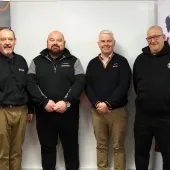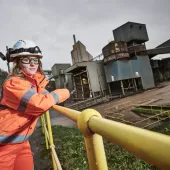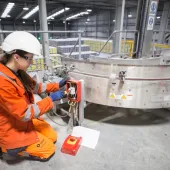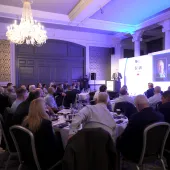Casella announce 2022 webinar series

Environmental hazard monitoring experts host free webinars on noise, air sampling and vibration
GLOBAL occupational health and workplace hazard monitoring experts Casella have announced their webinar schedule for 2022.
The free-to-attend, accessible webinars cover Casella’s areas of core knowledge, including workplace monitoring for noise, dust, gas, and vapour hazards, as well as instrumentation usage and best practice.
To reach worldwide attendees, two sessions will be run on each date, with one taking place at 10am and a later session at 3pm, to ensure learners across multiple time zones can benefit. Each webinar will conclude with a Q&A session to recap.
The webinar schedule is set to run as follows:
23 February – Environmental Boundary Monitoring in Construction: Understanding Data
Parameters and data can be intimidating to those unfamiliar with environmental monitoring. This session will provide expert guidance on key parameters for noise, particulate, and vibration, so that site managers can know their Leq from their PM10 and PPV. Casella will also advise on how to use data to prevent potential complaints, saving site time and costs.
16 March – Introduction to Air Sampling
Airborne hazards from fibres, gases, dust, and vapours can all cause potentially life-threatening damage to worker health. This session will provide expert insights on monitoring workers’ exposure with guidance on equipment, current requirements, and best-practice techniques.
13 April – Introduction to Noise at Work
This session will cover the different international workplace noise regulations, offering guidance on employer responsibilities and exploring ways that the use of noise dosimeters and sound level meters can support compliance.
18 May – Introduction to Asbestos Sampling
This session will provide a quick insight into the international use of asbestos, both now and historically, its associated health risks, and how to perform air sampling for asbestos. Attendees will be guided through the equipment and accessories needed with best-practice advice on how to set up equipment.
8 June – Setting up Air Sampling Pumps
Setting up air-sampling pumps and their associated items is paramount to ensuring accurate exposure data. This webinar covers selecting the correct pump, setting up a ‘sample train’, and ensuring accurate flow, as well as best practice to ensure good-quality data.
6 July – Introduction to HAV Monitoring
Hand Arm Vibration Syndrome (HAVS) is a serious condition that can be prevented with the correct control of exposure. This webinar reviews the terminology around HAV measurement, legislation, and exposure limits, as well as how to measure exposure on tools correctly and subsequently calculate exposure levels.
24 August – Environmental Boundary Monitoring in Construction: Best Practice
Boundary monitors can measure dust, noise, ground vibration, and wind parameters. Acquiring accurate measurements from these units is essential for reporting quality data and preventing environmental complaints. This session will cover the correct siting and installation of monitoring units to ensure compliance with guidance and legislation. In addition, attendees will gain a best-practice understanding of sensor operation and maintenance.
14 September – Introduction to Dust Sampling
This webinar will guide attendees through different facets of dust monitoring using air-sampling pumps, including types of dust to measure and the selection of equipment, such as sampling heads or filters. Additionally, the webinar will cover how to calculate airborne concentration and exposure.
19 October – Use of SLMs and Noise Dosimeters
This session will guide attendees through the applications and uses of noise dosimeters and sound level meters, and the pros and cons of each. This webinar will also provide a best-practice guide to getting the most from noise-monitoring equipment and cover the critical do’s and don’ts of instrumentation.
24 November – Introduction to Sampling Gases and Vapours
Personal sampling of vapours and gases requires knowledge to select the correct sampling media and the right accessories and flow rates. This webinar covers sources of information, how to set up a ‘sample train’, and how to select the correct air-sampling pump and equipment calibration.
To sign up for any of these webinars, free of charge, visit: UK & International – https://www.casellasolutions.com/uk/en/support/training/casella-webinars.html; US – https://www.casellasolutions.com/us/en/support/casella-webinars.html









